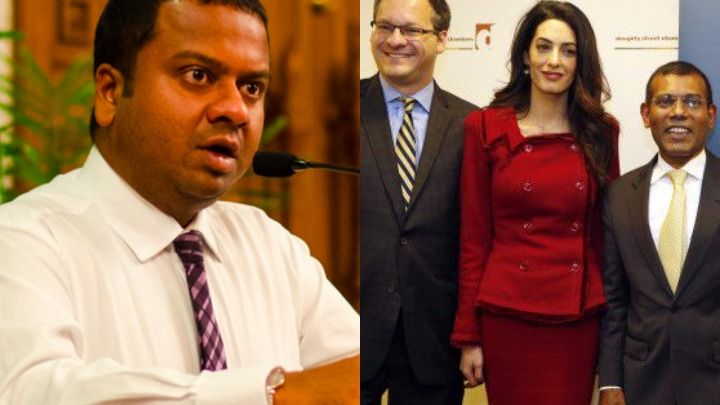Ambassador to Sri Lanka stands by threat to detain Nasheed
The ambassador-designate’s remarks prompted the opposition leader’s high-profile counsel Amal Clooney to warn that “any attempt by a Maldivian diplomat to detain President Nasheed in Sri Lanka would constitute a violation of international law as well as Sri Lankan criminal law.”

18 Sep 2017, 09:00
The ambassador-designate to Sri Lanka has stood by threats to detain former President Mohamed Nasheed after the exiled opposition leader’s high-profile international lawyers expressed concern about their client’s safety.
Mohamed Hussain Shareef ‘Mundhu’ told the pro-government Sun TV last week that the Maldivian embassy would enforce orders to detain Nasheed in Colombo and return him to the Maldives to serve his 13-year jail sentence on a terrorism conviction.
The remarks prompted Nasheed’s international counsel Amal Clooney to warn that “any attempt by a Maldivian diplomat to detain President Nasheed in Sri Lanka would constitute a violation of international law as well as Sri Lankan criminal law.”
The heavyweight human rights lawyer added: “President Nasheed should not be returned to the Maldives to serve a sentence that resulted from a sham trial, and it is incumbent on the Sri Lankan authorities to ensure that his rights are respected while he is in their country.”
Become a member
Get full access to our archive and personalise your experience.
Already a member?
Discussion
No comments yet. Be the first to share your thoughts!
No comments yet. Be the first to join the conversation!
Join the Conversation
Sign in to share your thoughts under an alias and take part in the discussion. Independent journalism thrives on open, respectful debate — your voice matters.




